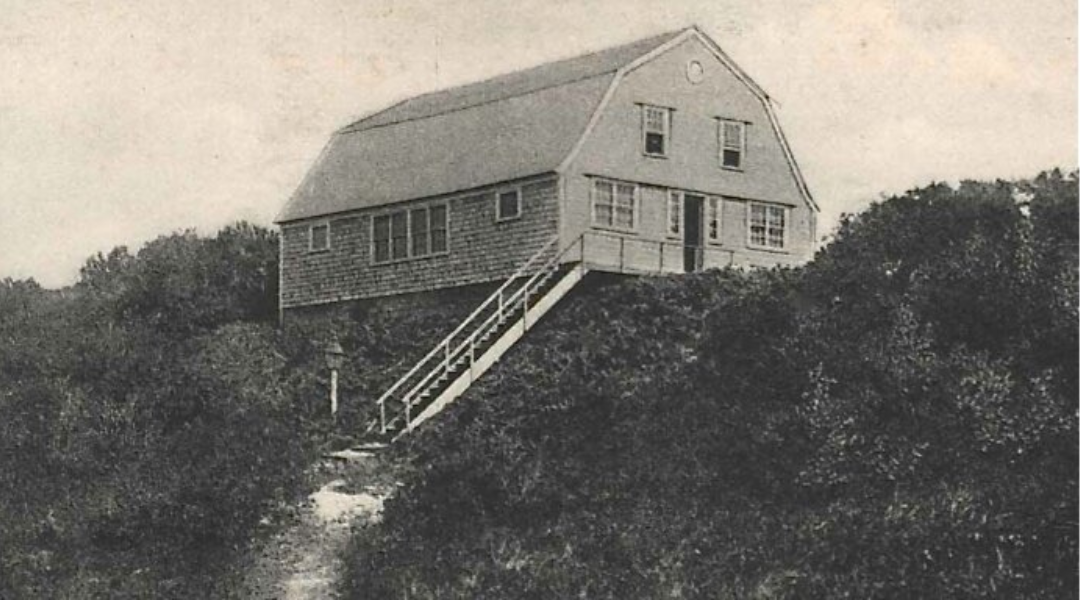
It Doesn’t Get More “Fantastik” Than This
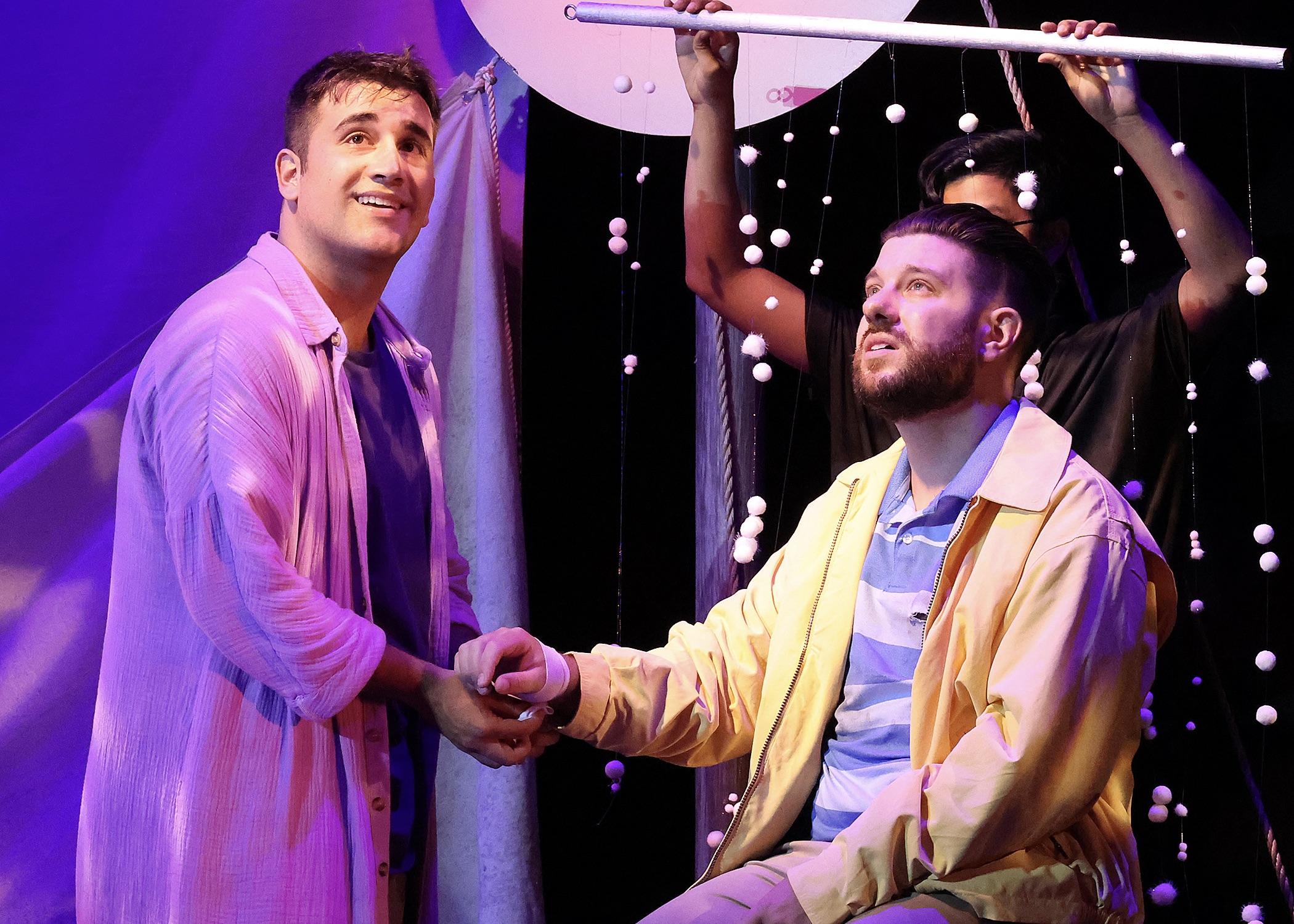
Comedy? Check. Romance? Check. A little drama? Naturally. A great score? Absolutely. A drop-dead funny and talented cast? For sure. David Drake and the Provincetown Theater have brought yet another amazing musical to the stage, with some fun gender-swapping, an infectious joie de vivre, and the East Coast premiere of a brand new envisioning of an old story.
It’s The Fantastiks as you’ve never seen it before.
I was a child in the 1960s when The Fantastiks made its New York debut (it eventually set a record for the world’s longest-running musical, with 17,162 performances), and my mother was someone who loved her show tunes. I didn’t identify Try to Remember with this particular musical, as it wasn’t her favorite (she was a Camelot girl through and through), but I remember the song and the way it tugged at some unidentifiable longing inside me.
And here it was, in the flesh, so to speak, sung by the flawless Beau Jackett (and it’s so good to see him onstage in Ptown again!): That Song. As wistfully beautiful as I remembered it. And when a musical brings you to tears in the first number, you know something special is going on.
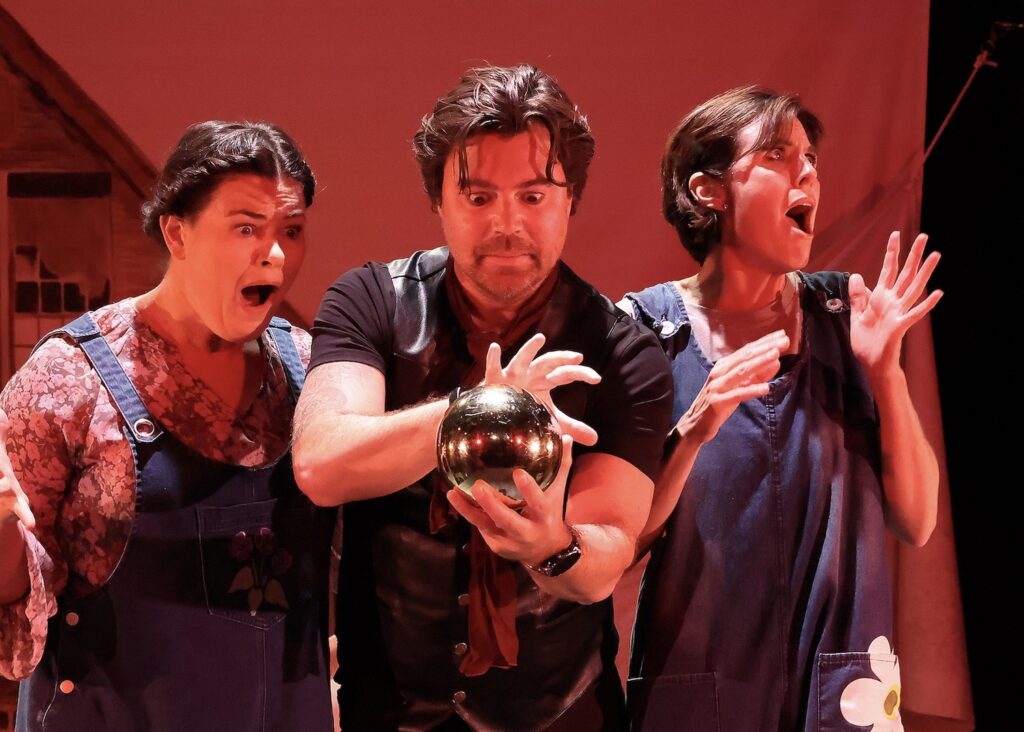
Which is certainly the case. Flipping genders in theatre is nothing new (hello, Shakespeare), but it’s done cleverly here… the two scheming fathers of the original have become two oddly carefree—but still devotedly gardening—mothers, and the hetero kids have become two young men who fall in love, seemingly against their mothers’ wishes. You don’t have to be a young man—or even young!—to feel the poignancy and innocence of their passion: this is a feel-good production that will leave you smiling, humming, and maybe even feeling a little bit better about the world. And we could all use some of that.
Drake’s direction is pitch-perfect. The sense of being transposed to a place not unlike Cape Cod (another outstanding creation by Ellen Rousseau), the tragi-comedy of young love, and the shadows which lurk beyond the flowers and laughter all seem made for the place and the moment. And his casting for the production is inspired: I’ve rarely seen a play in which every actor is spot-on perfect for their role.
In fact, the actors, every one of them, own the show, own the audience, own the evening. I’ll start with the lovers: Matt (Harrison Fish) and Lewis (Peter Toto) are gorgeous. Toto in particular offers an exuberant eagerness: when he looks into the distance, you really feel he’s seeing his future stretching out in front of him, exciting and new and filled with promise: “I am sixteen years old,” he says, “and every day something happens to me… please, God, let me be somebody special.”
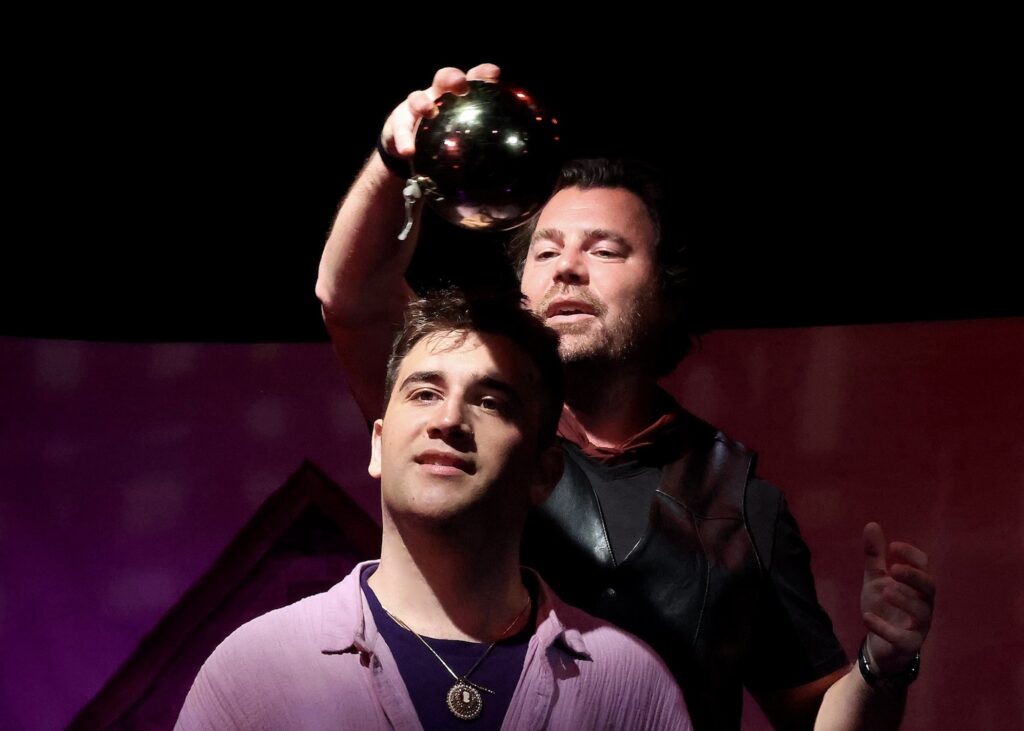
It’s Matt, though, who eventually leaves to discover the world: he is more restrained, his energy coiled inside him—and his views possibly more mature. But when that energy finds outlets (via Lewis, or his own hero’s journey, or the rediscovery of love), it’s intense.
As for the singing, dancing, and gardening mothers (Sara Fitzpatrick and Megan Amorese), there is such lovely glee there; even when the situation has turned against them—and they turn against each other—there’s not a lot of animus. One has the feeling that somehow it will all come right, though, of course, “life never ends in the light of day.”
One cannot have drama without a catalyst, and Jackett’s El Gallo, part pirate, part huckster, does it to perfection. From his heeled boots to the scarf he flips quasi-meaningfully, he alternates between best confidant and blatant used-car salesman. Enlisted by the mothers to advance their plans by staging an abduction, he’s ably assisted by aging actor Henry (Jay Baer) and his sidekick, Mortimer (Kenneth Lonergan), and of course the plans go awry, but not before Baer and Lonergan deliver side-splittingly funny lines and antics.
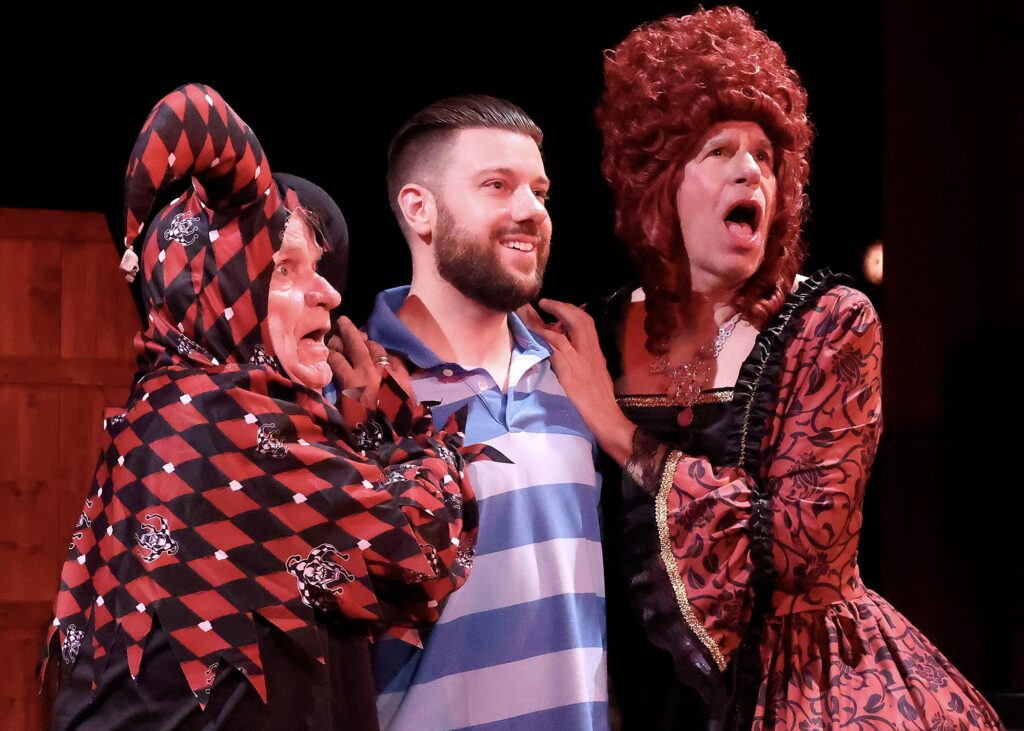
Again, one of Drake’s strengths is in the artists he draws together. These people can sing, and their harmonies are often achingly beautiful. Under John Thomas’ inspired (and energetic!) direction and performance, the music moves the play at a vigorous clip and brings many, many more possibly forgotten songs back into the audience’s consciousness.
The show-stealer, from my point of view at least, is—wait for this combination—cellist extraordinaire and props-boy Chanthoeun Varon Collins, who despite having no lines (he is, after all, billed as “The Mute”) brings the house down with his sense of timing and of course the use of Thom Markee’s wonderful props.
Ultimately, this is an uplifting story about the rediscovery of love (despite worldly pains and temptations) and the resilience of hopeful wonder. The show’s subtle sophistication shines through the complexity within seemingly stock characters, powerful lyrics nestled within hummable songs, and rhymed verse worked seamlessly through the prose. And it’s difficult to imagine any better production vehicle for such a story than the Provincetown Theater.
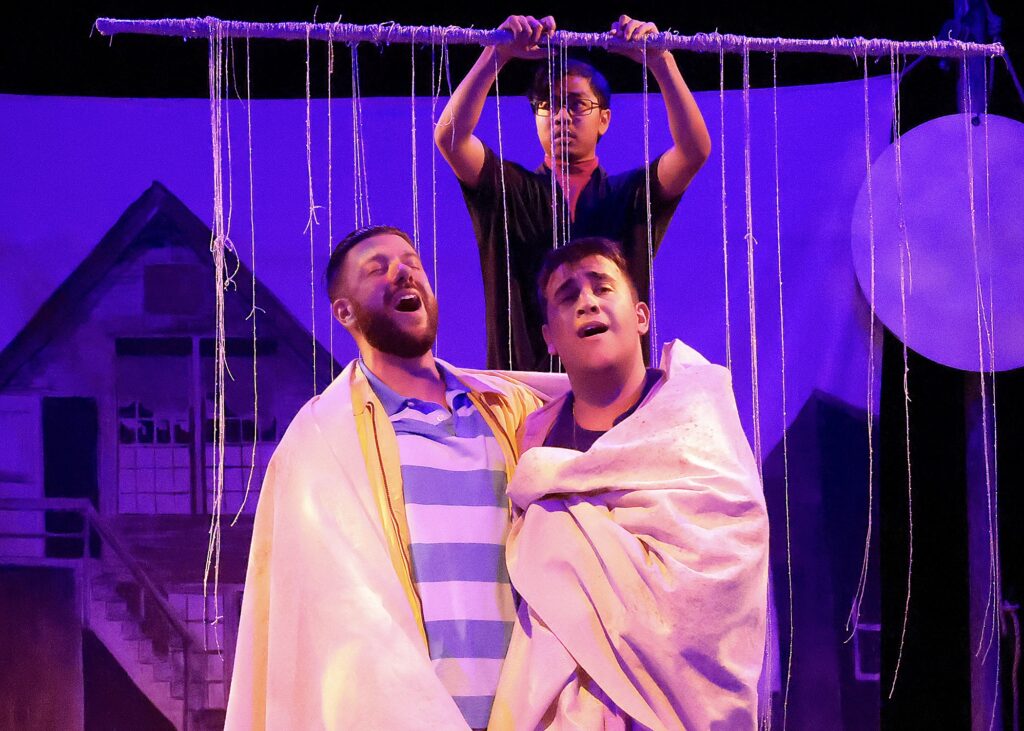
Photos: Bob Tucker/Focalpoint
More Recent Provincetown News

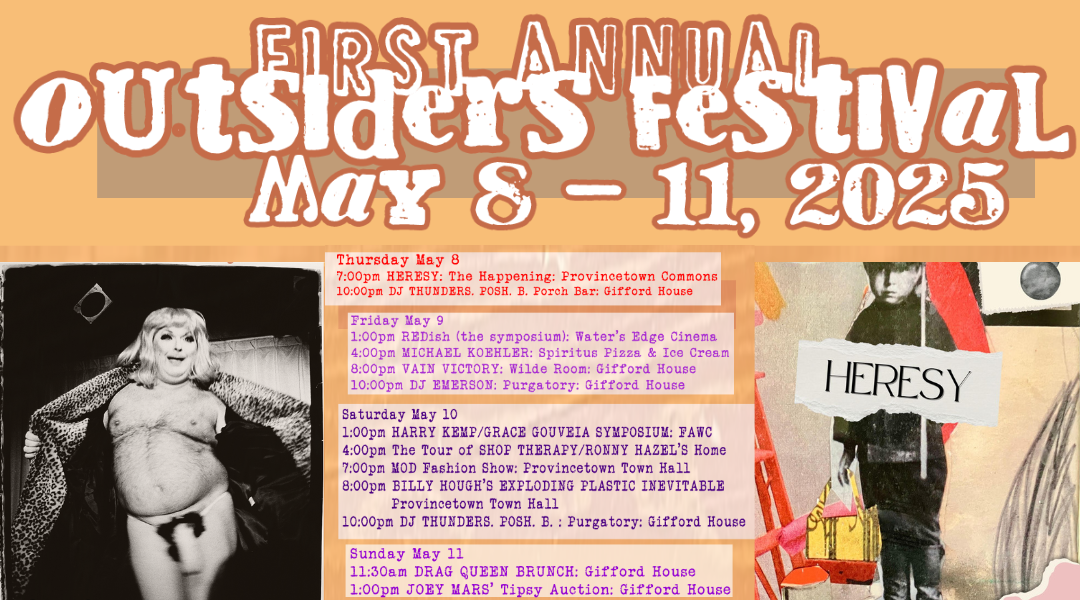


 Accommodations
Accommodations  Art
Art  Bars
Bars  Books
Books  Entertainment
Entertainment  Events
Events  Featured
Featured  Guides
Guides  History
History  Literary stuff
Literary stuff  Most Popular
Most Popular  Provincetown News
Provincetown News  Restaurants
Restaurants  Reviews
Reviews  Shopping
Shopping  Theatre
Theatre  Uncategorized
Uncategorized  Weed
Weed